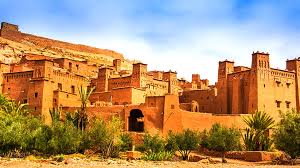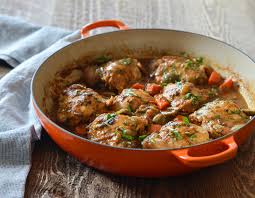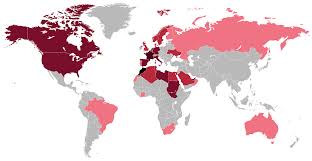Exploring the Beauty of Morocco: A Tourist’s Guide
Known for its vibrant culture, stunning landscapes, and warm hospitality, Morocco is a treasure trove for tourists seeking an unforgettable adventure. From bustling souks to ancient medinas, here’s a glimpse into the enchanting world awaiting travellers in this North African gem.
Immerse Yourself in Moroccan Culture
One of the highlights of visiting Morocco is experiencing its rich cultural tapestry. Explore the labyrinthine streets of Marrakech’s medina, where you can haggle for spices and handicrafts in the bustling souks. Marvel at the intricate tilework and architecture of historic sites like the Hassan II Mosque in Casablanca or the ancient Roman ruins of Volubilis.
Indulge Your Senses in Moroccan Cuisine
No trip to Morocco is complete without savouring its mouth-watering cuisine. Taste traditional dishes like tagine, couscous, and pastilla at local eateries or try your hand at cooking classes to learn the secrets of Moroccan gastronomy. Don’t forget to sip on sweet mint tea as you soak in the vibrant atmosphere of a traditional Moroccan cafe.
Discover Diverse Landscapes
From the golden dunes of the Sahara Desert to the snow-capped peaks of the Atlas Mountains, Morocco’s landscapes are as diverse as they are breathtaking. Embark on a camel trek through Erg Chebbi or hike through lush valleys dotted with Berber villages for a truly immersive experience in nature.
Experience Moroccan Hospitality
The warmth and hospitality of Moroccans are legendary. Stay in a riad for an authentic glimpse into local life or join a homestay to connect with Berber families in rural communities. Whether you’re exploring cosmopolitan cities or remote villages, you’ll be welcomed with open arms and genuine smiles.
Plan Your Moroccan Adventure Today!
With its blend of ancient traditions and modern allure, Morocco offers something for every type of traveller. Whether you’re seeking cultural immersion, outdoor adventures, or simply relaxation by the seaside, this North African gem promises an unforgettable journey that will leave you yearning for more.
Top 5 Frequently Asked Questions for Tourists Visiting Morocco
- What are the must-visit attractions in Morocco for tourists?
- Is it safe for tourists to travel to Morocco?
- What is the best time of year to visit Morocco as a tourist?
- Do I need a visa to visit Morocco as a tourist?
- What are some traditional dishes that tourists should try in Morocco?
What are the must-visit attractions in Morocco for tourists?
When it comes to must-visit attractions in Morocco for tourists, the options are as diverse as the country itself. From the bustling Jemaa el-Fnaa square in Marrakech, where snake charmers and market stalls create a vibrant spectacle, to the serene blue-hued streets of Chefchaouen nestled in the Rif Mountains, each destination offers a unique and unforgettable experience. Don’t miss the historic medinas of Fes and Essaouira, the majestic kasbahs of Ait Benhaddou and Skoura, or the surreal landscapes of the Sahara Desert. Whether you’re drawn to cultural landmarks, natural wonders, or architectural marvels, Morocco’s attractions are sure to captivate every traveller’s heart.
Is it safe for tourists to travel to Morocco?
Travelling to Morocco is generally considered safe for tourists, with the country welcoming millions of visitors each year. Like any travel destination, it is important for tourists to exercise caution and be aware of their surroundings. Major cities and popular tourist areas in Morocco have a visible police presence to ensure the safety of visitors. It is advisable to take standard precautions such as safeguarding personal belongings, avoiding isolated areas at night, and being vigilant in crowded places. By staying informed and respecting local customs, tourists can enjoy a memorable and safe experience exploring the diverse landscapes and vibrant culture that Morocco has to offer.
What is the best time of year to visit Morocco as a tourist?
When planning your visit to Morocco as a tourist, one of the most frequently asked questions is, “What is the best time of year to visit?” The answer largely depends on your preferences and the experiences you seek. Generally, the spring months of March to May and autumn months of September to November are considered ideal for exploring Morocco. During these periods, the weather is mild, making it pleasant for sightseeing and outdoor activities. Summer can be hot in many parts of the country, especially in the desert regions, while winter brings cooler temperatures and even snowfall in the mountains. Ultimately, choosing the best time to visit Morocco will depend on your desired activities and tolerance for different weather conditions.
Do I need a visa to visit Morocco as a tourist?
Travellers frequently ask, “Do I need a visa to visit Morocco as a tourist?” The answer depends on your nationality. Citizens of many countries, including the UK and EU member states, do not require a visa for short visits to Morocco (typically up to 90 days). However, it is essential to check the specific visa requirements based on your citizenship before planning your trip. Ensure your passport is valid for at least six months beyond your intended stay and that you comply with all entry regulations to make your Moroccan adventure hassle-free.
What are some traditional dishes that tourists should try in Morocco?
When exploring the culinary delights of Morocco, tourists should not miss the opportunity to savour some of the country’s traditional dishes. From the iconic tagine, a slow-cooked stew bursting with flavours of meat or vegetables and fragrant spices, to couscous, a staple grain dish typically served with tender meat and an assortment of vegetables, Moroccan cuisine offers a rich tapestry of taste sensations. For those with a sweet tooth, indulging in pastries like baklava or chebakia is a must to experience the delicate blend of honey, nuts, and spices that define Moroccan desserts. These dishes not only showcase the depth of Moroccan culinary traditions but also provide a delightful insight into the country’s vibrant culture.




